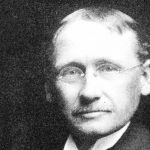Stafford Beer

Anthony Stafford Beer (1926 – 2002), born in London, was a British theorist, consultant, psychologist and professor at Manchester Business School. Anthony Stafford Beer is best known for his work in the field of Management Cybernetics, together with Norbert Wiener) and as founder of the Viable System Model.
Biography Stafford Beer
Stafford Beer started studying philosophy at University College in London, but discontinued this study from 1944 to 1947 when he joined the army.
In 1949 he joined United Steel and he persuaded its management to set up an operational research group, the department of Operations Research and Cybernetics which became his responsibility.
In 1961 Stafford Beer left United Steel Eddison and started an operational research consultancy with Roger Eddison called SIGMA (Science in General Management). Stafford Beer left SIGMA in 1966 to work for a SIGMA client, the International Publishing Corporation (IPC). He was appointed Development Director and advocated knowledge development with respect to new computer technologies.
In 1970 Stafford Beer left the IPC to work as an independent consultant and he focused on his growing interest in social systems. Stafford Beer was a visiting professor at different universities and received almost 30 honorary doctorates for his work and contributions. Stafford Beer was President of the World Organization of Systems and Cybernetics.
He also received Academy Awards from the Royal Swedish Academy for Engineering Sciences in 1958, from the Systems Society in the United Kingdom, from the Cybernetic Society, the American Society for Cybernetics and the Operations Research Society of America.
Stafford Beer died in Toronto on 23 August 2002, at the age of 75 after a considerable period of ill health.
Stafford Beer quotes
- “The purpose of a system is what it does. There is after all, no point in claiming that the purpose of a system is to do what it constantly fails to do.”
- “If cybernetics is the science of control, management is the profession of control.”
- “Too close a view may interfere with one’s grasp of an overall problem or concept.”
- “Policy-making, decision-taking, and control: These are the three functions of management that have intellectual content.”
- “It is the concept of likelihood that a real understanding of probability resides, and we must learn how to measure it.”
- “There is, then, a logical priority about the arrangements, and logic has nothing to do with time.”
- “A stochastic process is about the results of convolving probabilities-which is just what management is about, as well.”
- “It is terribly important to appreciate that some things remain obscure to the bitter end.”
- “Management problems are not respecters of the company organization, nor of the talents of the people appointed to solve them.”
- “Certain management policies-stretching of credit resources, for example-may lead to great progress in good conditions; but, like the Grand Prix car in comparison with the Land Rover, they may not be robust enough to survive when the going gets tough.”
Publications and books
- 1998, 1993. Designing freedom. House of Anansi.
- 1994, 1981. Brain of the firm: the managerial cybernetics of organization. Wiley.
- 1994, 1966. Decision and Control: The Meaning of Operational Research and Management Cybernetics. John Wiley & Sons.
- 1994. The Heart of Enterprise: Companion Volume to Brain of the Firm. Wiley.
- 1994. Diagnosing the System for Organizations. John Wiley And Sons Ltd.
- 1994. Platform for Change: A Message from Stafford Beer. John Wiley And Sons Ltd.
- 1994. Beyond dispute: the invention of team syntegrity. Wiley.
- 1984. The viable system model: its provenance, development, methodology and pathology. Journal of the operational research society, 7-25.
- 1968. Cybernetica en management. Agon Elsevier.
- 1966. Diagnosing the system for organisations. John Willey.
- 1959. Cybernetics and Management. English University Press.
How to cite this article:
Van Vliet, V. (2011). Stafford Beer. Retrieved [insert date] from Toolshero: https://www.toolshero.com/toolsheroes/stafford-beer/
Published on: 07/06/2011 | Last update: 09/01/2022
Add a link to this page on your website:
<a href=”https://www.toolshero.com/toolsheroes/stafford-beer/”>Toolshero: Stafford Beer</a>











